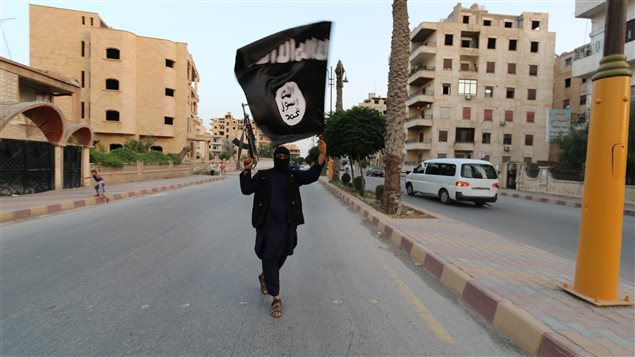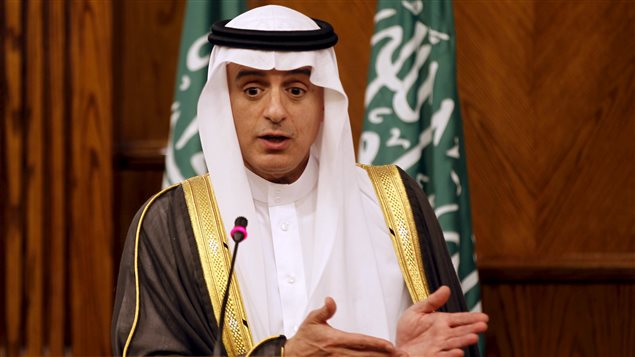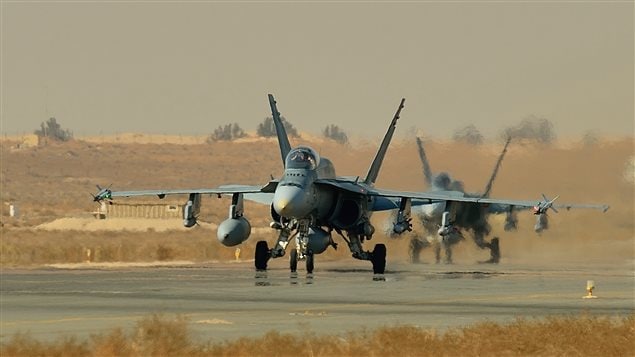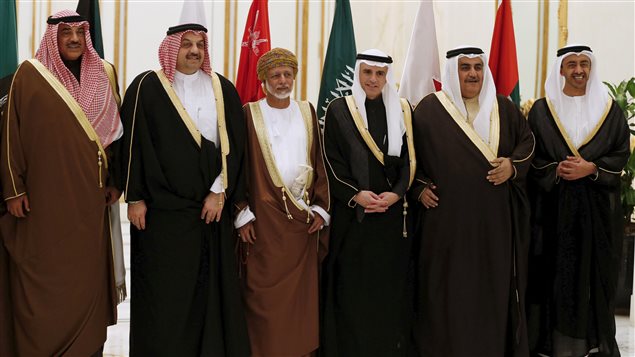A leaked UN report alleging that the Saudi-led coalition fighting Iranian-backed rebels in Yemen may have committed war crimes and crimes against humanity is fueling a debate not only about Canada’s multibillion sale of armoured vehicles to the ultra-conservative kingdom, but the entire nature of Ottawa’s relationship with Riyadh and its Gulf allies.
On the one side of the debate are people like Paul Heinbecker, a former Canadian ambassador to the United Nations and chief foreign policy advisor to former Prime Minister Brian Mulroney, who says we should not be selling arms to a regime with the human rights record like that of Saudi Arabia.
“The Saudis have one of the one of the worst human rights records, the worst of the worst,” Heinbecker said. “They still behead people, they carry out public executions, women are totally repressed, and this is a country that carries out a war with apparently a lot of indiscriminate bombings in Yemen.”
(click to listen to the interview with Paul Heinbecker)
ListenPreserving stability

On the other side of the argument are people who argue that as bad as Saudi Arabia’s human rights record is, it is in the West’s – and by extension Canada’s – geopolitical interest to support Riyadh in the face of an increasingly assertive Iranian policy in the region, on the one hand, and the threat posed by ISIS militants fighting to establish an Islamist state in Syria and Iraq, and eventually the rest of the Middle East, on the other.
Supporters of this argument – all my attempts to find someone who would go on the record to voice these opinions have so far failed – say Western pro-democracy and human rights advocates are being dangerously naïve if they think the regimes that will replace the absolute monarchies of the House of Saud and the lesser Gulf kingdoms and emirates will be more democratic and human rights friendly.
They argue, citing examples of recent Arab spring revolutions, that because of the lack of any meaningful opposition, weak civil society and a complete absence of democratic traditions, what is likely to replace the Gulf monarchies is an even more extreme form of Islamism.
They say imagine an ISIS on steroids – a caliphate with control of Islam’s holiest places, sitting on top of the world’s largest oil reserves, armed to teeth with latest Western weaponry, and filled with pathological hatred of the West.
“I think that’s a cop-out argument, frankly,” Heinbecker said. “Where do the people who make that argument suppose the money and the drive is coming from for IS (Islamic State), for the terrorist organizations, the Wahhabi faith, the strong-strong support of Sharia law. It’s coming out of Saudi Arabia. In what respects is that going to get worse?”
The people who make the argument that Canada should support Saudi Arabia because the regime that replaces it could be worse, need to explain how the Saudi regime has set up madrassas throughout Muslim countries that are teaching extreme interpretations of Islam, Heinbecker said.
“If there is some other way that we can engage with them, which might lead them towards a more internationally acceptable posture, then we should do that, but selling them arms is not the way to do it,” Heinbecker said. “To put it in perspective, would we have be selling $15 billion dollars worth of military equipment to Iran? And is Iran got a worse human rights record than Saudi Arabia? A lot of people don’t think so.”
Business interests

Anthony Fenton, an author, a PhD candidate at York University who studies Canada’s foreign policy, and is a vocal critic of relations with the monarchies of the Arabian Peninsula, said the past decade has seen a real intensification of Canada’s ties with the Gulf monarchies.
(click here to listen to the interview with Anthony Fenton)
ListenFormer Conservative Foreign Affairs Minister John Baird was the only foreign affairs minister in Canada’s history to visit each Gulf monarchy, Fenton said.
“And he did so in many cases several times,” Fenton said in an interview with RCI. “He did over ten visits to the region during his tenure as foreign affairs minister and that’s an example of how seriously the Canadian government and the Canadian state have been taking this relationship.”
The effort to deepen the ties with the Gulf states, which go back some 50 years, was not only driven by the war in Afghanistan and Canada’s need to establish midpoint logistics hubs in the region, but more so by the rise of very powerful but little-known business lobbies, pushing for better relations with the region to cash in the petrodollar bonanza at the time, Fenton said.
This business lobby has been pushing Ottawa to make a priority of its relations with the Gulf Cooperation Council, comprised of Saudi Arabia, Kuwait, the United Arab Emirates (UAE), Qatar, Bahrain, and Oman, Fenton said.
Growing military ties
The Canadian military has had an ongoing presence in the region even prior to the war in Afghanistan, starting with the first Gulf War in 1990-1991. Following the war which saw with Canadian units being stationed in Kuwait and Saudi Arabia, the navy was involved in the enforcement of sanctions against Saddam Hussein’s Iraq, Fenton said.
“And then you had the Afghanistan war, Canada still maintained naval units in the Arabian Sea,” Fenton said. “And then, of course they established this basing arrangement with the United Arab Emirates, this so-called ‘secret’ military base, called Camp Mirage.”
Canadian troops also worked alongside UAE special forces in Afghanistan, Fenton said.
When the UAE kicked out Canada from Camp Mirage in 2010, Kuwait agreed to host the Canadian military, which now has stationed its air assets in the fight against ISIS in the kingdom, Fenton said.
Canada’s ties with the GCC countries have continued to flourish under the Liberal government of Prime Minister Justin Trudeau as well.
In December, Foreign Affairs Minister Stephane Dion hosted his Saudi counterpart Foreign Minister Adel Al-Jubeir in Ottawa. The two men discussed regional security issues, including Yemen, according to a statement from Global Affairs Canada.

“The ministers also discussed Canada’s concerns regarding the state of human rights in Saudi Arabia,” the statement said.
Then in the beginning of January, Dion met with the ambassadors to Canada from the GCC countries on to “discuss regional tensions and conflicts.”
“Canadian officials will continue to have ongoing dialogue with partners in the Middle East on a variety of issues, including the situation in Yemen,” said the statement from Global Affairs Canada.
But Canada has not received any requests for military assistance to the Saudi-led coalition in Yemen, the statement said.
According to Capt. Nicola LaMarre, a spokesperson for the Canadian Armed Forces (CAF), approximately 17 Canadian soldiers are currently deployed in both Qatar and Bahrain as part of Operation FOUNDATION, Canada’s “contribution to multi-national counter-terrorism efforts in the Middle East, North Africa and Southwest Asia.”
The CAF members serving with U.S. Air Forces Central (AFCENT) in Qatar are assigned to the Combined Aerospace Operations Centre (CAOC) and other AFCENT aerospace control facilities, Capt. LaMarre said.
The Canadian soldiers serving with Combine Maritime Forces (CMF) in Bahrain work as members of the staff while, also providing liaison between the host headquarters and the CAF, she said.

“Additionally, 7 Canadian Armed Forces members are currently deployed to Bahrain as part of Operation ARTEMIS, the Canadian Armed Forces’ participation in counterterrorism and maritime security operations across the Red Sea, the Gulf of Aden, the Gulf of Oman and the Indian Ocean,” LaMarre said. “Working with Combined Task Force 150 (CTF-150) in Bahrain, CAF members are currently acting as Deputy Commander and Chief of Staff of CTF-150 as well as working in planning, logistics and as watch-keepers.”
The duties and responsibilities of Canadian soldiers deployed to Qatar and Bahrain do not include operations in support of Saudi-led coalition fighting in Yemen, Capt. LaMarre said.
But it’s not just military relations that the Canadian civil society should be focusing on, Fenton said, it’s the other problematic ties: numerous top level Canadian companies are working in the region, basically propping up these ruling families .
“And there are a lot other problems within the Gulf monarchies that we should be attentive to – the role of migrant labour, the exploitation of workers coming from Southeast Asia,” Fenton said. “And a lot of these projects that these workers are working on are designed, managed and run by other Canadian companies that are deeply involved in the fashioning of these modern, new era capitalist countries in the Gulf as well.”
Fenton says Canada and Western countries should stop adding fuel do the fire by arming the Gulf monarchies.
“Help to take the boot of these states off the neck of the people and provide the people with room they need to maneuver and fashion their own future on their own,” Fenton said. “But we’re not doing that by sending them weapons, we’re not doing that by propping up these regimes.”








For reasons beyond our control, and for an undetermined period of time, our comment section is now closed. However, our social networks remain open to your contributions.